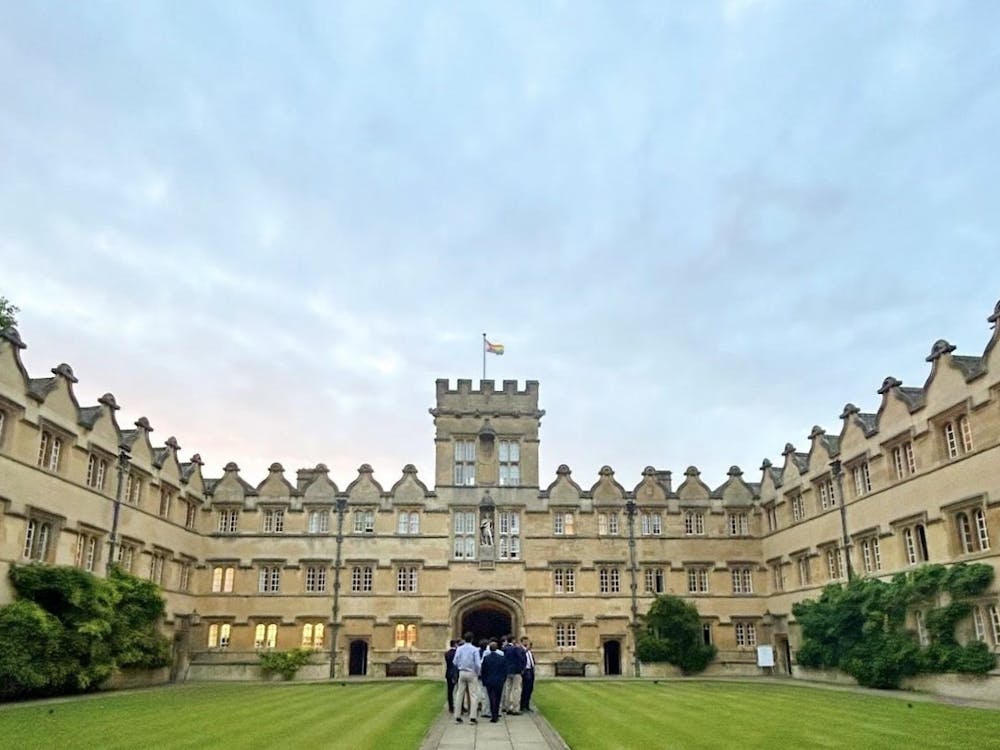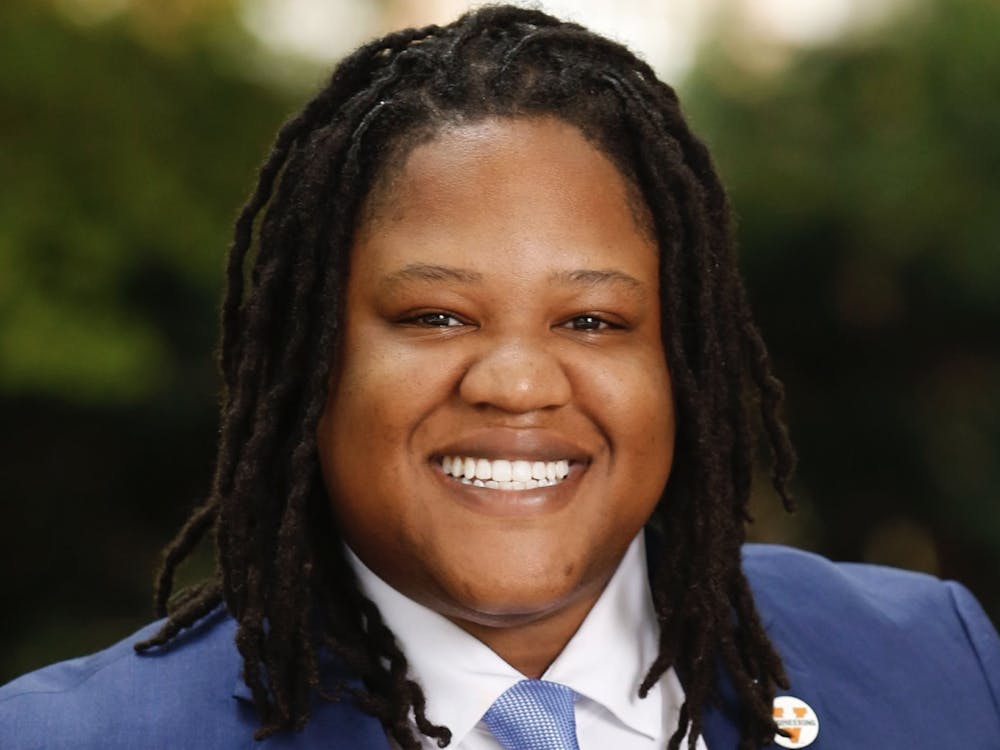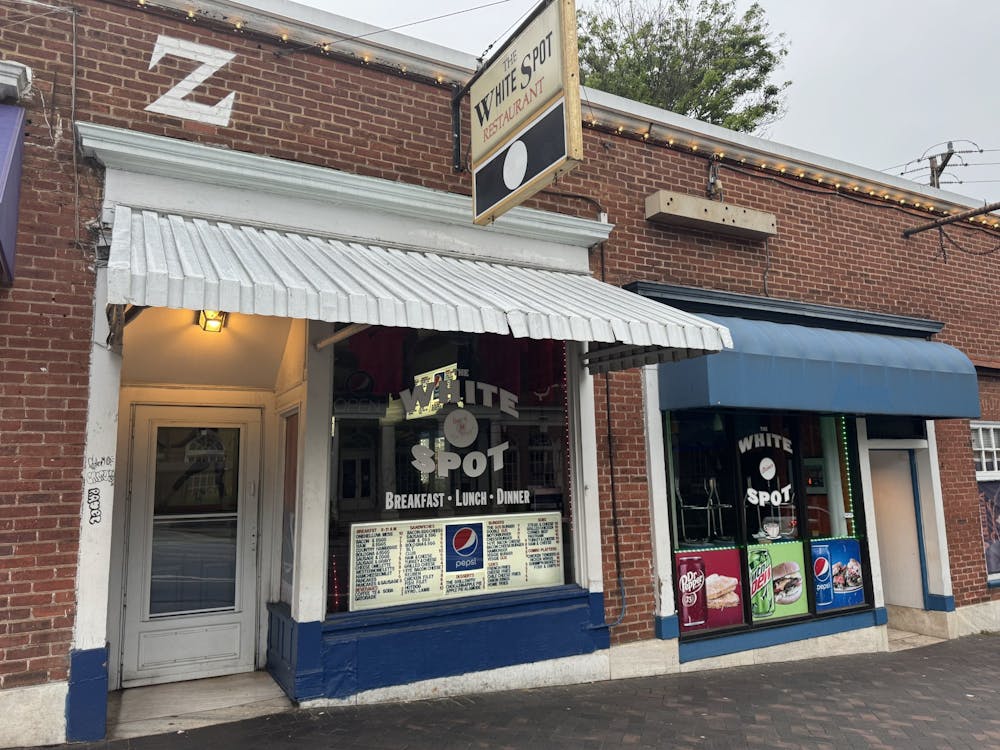In Indonesian cuisine, rice is a staple. It is eaten plain or with a spicy mixture of beef, pork and vegetables. It is drizzled in peanut and soy sauces or with sweet coconut milk and papaya and even sipped in fermented rice wine. So when second-year College student Felicia Tansil visited Newcomb Hall for the first time last August, it was soon apparent that her diet was going to change. But that was not the only surprise awaiting her during her first year in college and in the United States.
Tansil attended high school in Bogor, Indonesia, a colorful resort town boasting a world-famous botanical garden and lively markets teeming with exotic fruits.
Tansil participated in her high school's international baccalaureate program and planned to study business at a university in Singapore, until her brother recommended the University of Virginia's Commerce School. Without having ever visited the United States, Tansil applied early decision, received her acceptance letter in December and prepared for a new life 10,000 miles from home.
She spent her first year in Brown Residential College, where she was one of few international students. Conservative Indonesia seemed worlds away.
"People were very open, very free," Tansil said. "Everyone can express how they feel, what they think. It was quite shocking."
For international students like Tansil, support makes all the difference when adjusting to life in another country. From cultural norms to travel regulations, there is a lot to learn and plenty of students and faculty eager to help.
Building an international community
According to the International Studies Office, culture shock is not as shocking as it used to be.
"Culture shock is not as prevalent these days," said Cliff Maxwell, an international student and scholar advisor. "Students have student organizations to rely upon. They have people that are attuned to their culture when they arrive."
Organizations like the Asian Student Union, European Society, Hindu Students Council and Latino Student Union provide a comforting connection to home for some students. Others may opt to participate in the international host program, in which volunteers in Charlottesville act as surrogate families, picking students up at the airport, taking them shopping and even inviting them to Thanksgiving dinner. Exchange students are paired with a "U.Va. buddy," an American student who has studied abroad. The honor code is also explained in detail: In some countries, Maxwell said, the concept is completely foreign.
The University itself is not well known to many international high school students, so to improve the University's profile globally, representatives travel worldwide to speak at high schools.
"The international admissions office goes out and recruits, looking for the best and brightest students," Maxwell said. "We give international students the opportunity to learn from great professors in a small community, away from the big cities."
There are a number of alumni associations abroad, he said, and the University's reputation is continuously improving -- not only because of published rankings but also from "students who go home and talk about their experiences."
For the approximately 10 percent of the student body comprised of international students, cultural differences are not the only worry -- bureaucratic red tape is also an obstacle. The International Studies Office helps students deal with travel regulations and student visas, which can be an overwhelming amount of paperwork if dealt with alone.
Virginia, the United States and beyond
Virginia 2020, a plan introduced by University President John T. Casteen in 1998 to improve several facets of the University, highlights international studies as a top priority. In a 2000 report, the International Studies Commission stated, " ... in a world community of scholarship that is increasingly interactive, our University's eminence depends on its intimate involvement in the global academy."
According to Maxwell, the presence of international students is instrumental in achieving this vision.
"We are an international community and what goes on around the world affects us," Maxwell said. Through cultural exchange programs, "we have the opportunity to see how international students think and behave, and they can observe us. It makes the global community a little closer."
The cost of the American dream
There is a voice for international students within Student Council, and it's second-year College student Batkhuu Dashnyam.
Dashnyam was born in Mongolia's capital city, Ulaanbaatar. It is a city like many others, with museums, malls, monuments and a vibrant nightlife. But a few miles from Ulaanbaatar, the yurts -- or tents -- of nomadic groups encompass the countryside. Mongolia is a country in transition, Dashnyam said, and many students look abroad for opportunities.
Following the democratic revolution in 1990, when Mongolia shifted from a communist to a capitalist state, interest in an international education flourished.
"A lot of Mongolians believe in the American dream, that anyone can be happy here," Dashnyam said.
As a child, Dashnyam attended a private school famed for its instruction in Mongolian and English. He spent his afternoons "glued to the television," supplementing his education with American cartoons. At the age of 12, he traveled to America to immerse himself in the English language.
He spent his school years with a host family in America and his summers in Mongolia and eventually entered Yorktown High School in Arlington, Va. It was at a college fair that he first considered the University, and on the recommendation of a friend at the Mongolian embassy, he decided to apply.
For those international students who wish to study abroad in Europe, America or Asia, cost can be a deciding factor. Dashnyam joined Student Council, which proved to be the perfect opportunity to help lessen the burden on students from his country.
He noticed that, although the University provides financial aid for eligible American students, there is not equivalent aid for international students. This lowers the University's profile internationally, he said.
Dashnyam noted that while the University ranks highly in the U.S. News & World Report, it is ranked 130th in the world according to the Times Higher Education Supplement.
"We're ranked below universities like the University of Illinois and Washington University, who are ranked below U.Va. on the U.S. News & World Report," Dashnyam said.
He added that most Mongolians are familiar with Ivy League universities and universities with generous financial aid. Many of his friends had never heard of the University of Virginia.
Dashnyam drafted a bill, the International Student Financial Aid Fund, seeking private donors. He said he hopes it could attract a more diverse group of international students. The bill was introduced late in the school year, and although it was met with praise, it will not be debated until this semester. In the meantime, Dashnyam has had time to reflect upon his first year, and he urges international students to get involved in activities across the spectrum of communities.
"Many international students join cultural groups and see mainstream clubs [like Student Council] as white," Dashnyam said. "They're a little reserved and shy and feel uncomfortable talking to American kids."
While living in the International Residential College, Dashnyam said he noticed that students from the same country tended to stick together. He said he encourages international students to break away from familiar faces, but added that non-cultural groups should improve their efforts to reach out to international students.
"U.Va.'s goal is to prepare student leaders who are well-rounded," Dashnyam said. "Bringing in determined, talented students from poor countries, in addition to the wealthy, will certainly help that goal. We can produce great leaders who will go back to their country and make great changes, and raise awareness of the University of Virginia."




